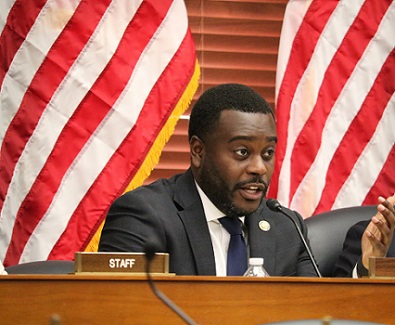Blue Wave Rising: Amo Unveils Rhode Island's Maritime Economic Potential in Environmental Hearing

Rhode Island's Blue Economy Takes Center Stage in Congressional Hearing
In a pivotal moment for coastal economic development, Representative Gabe Amo of Rhode Island brought national attention to the Ocean State's maritime potential during a recent House Science, Space, and Technology Subcommittee on Environment hearing.
On March 26, Amo delivered a compelling narrative that traced Rhode Island's maritime heritage from the historic days of Roger Williams and the Gaspee Affair to the present, highlighting the critical importance of the blue economy in the state's economic landscape.
The hearing provided a platform to showcase Rhode Island's innovative approach to marine industries, economic sustainability, and environmental stewardship. By emphasizing the state's long-standing maritime traditions and forward-looking economic strategies, Amo underscored the significance of oceanic resources in driving regional and national economic growth.
As a representative from a state with deep maritime roots, Amo's testimony serves as a powerful reminder of the blue economy's potential to create jobs, foster innovation, and maintain ecological balance in coastal communities.
